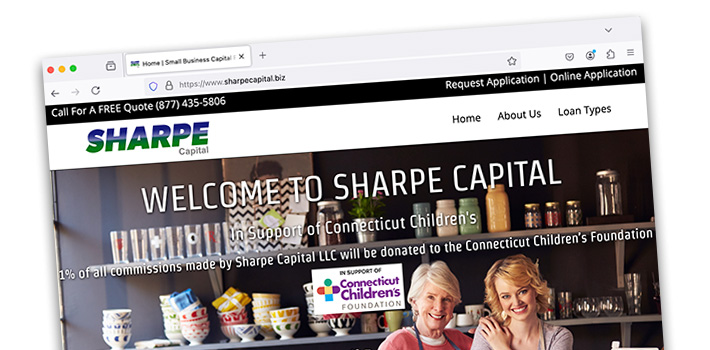Sean Murray is the President and Chief Editor of deBanked and the founder of the Broker Fair Conference. Connect with me on LinkedIn or follow me on twitter. You can view all future deBanked events here.
Articles by Sean Murray
Applicant Didn’t Complete their Business Loan Application? They Might’ve Gotten Stuck
September 26, 2024 “Early discovery showed us in the market that over 85% of [small business] loan application packets were straight up abandoned,” said Jay Long, COO and co-founder of Parlay.
“Early discovery showed us in the market that over 85% of [small business] loan application packets were straight up abandoned,” said Jay Long, COO and co-founder of Parlay.
In an era where fintechs have sought to increase the speed and accuracy of the underwriting process, Parlay, an AI-native SaaS company, noticed that one major lingering challenge for small business lenders starts well before today’s tech stacks even come into play. For example, an applicant might not be sure what they’re supposed to be submitting to the lender in the first place and thus the process may never even make it to the fintech underwriting stage. This bottleneck comes at a cost for both a lender who fails to move a loan application forward and for a borrower who gets stuck and isn’t able to get what they wanted.
“A lot of small businesses when you request a bunch of stuff in an email or you just say ‘give me these things,’ they may not have the financial background, that financial education to know how to answer those questions,” said Alexandra McLeod, CEO and co-founder of Parlay. “And so what we’ve done is we’ve built a series of really intuitive, user-friendly, plain-English workflows that are easy and rapid to get through but also systematic.”
Parlay’s Loan Intelligence System (LIS) was drawn from interviews with hundreds of small businesses and also by observing how they did with existing workflows.
“We’re asking them yes-no questions, and based on how they answer, then the questions arrange themselves in a specific way,” said McLeod. “But also, we have tool tips in the platform, so if somebody doesn’t know what a term is or if they need help building something—like a debt schedule is something they have to provide, and people don’t know how to generate those, then we have these builders in the workflows to help them with that.”

At present, Parlay is focused on SBA 7(a) loans with their most common customer being a community bank or credit union. The company’s focus on the intake process has also enabled their technology to do even more, and that is to nurture applicants that are not eligible for approval to eventually become eligible through personalized actionable recommendations.
According to Parlay, their LIS easily integrates with existing Loan Origination Systems and it improves profitability without increasing overall business risk.
For McLeod, who has a prior background with financial inclusion initiatives and startups, she’s seen firsthand that there are financial institutions eager to provide capital to the underserved but that the economics to do it with legacy systems at scale have just made it too cost prohibitive. “The other side of the problem is the small business needs more hand holding,” said McLeod, “and the lender can’t provide it. And so this is a perfect application of technology where you can offer a scalable alternative where you can handhold the small business, you can provide a lot more insight to the lender as to the needs of those small businesses and you can generate that outcome of more booked loans because more people can actually get through the process.”
Notably, Parlay is a recent graduate of the Center for Accelerating Financial Equity (CAFE) Fintech Accelerator Program, which supports fintechs advancing health & wellness of underserved populations. CAFE is headquartered in the Fintech Innovation Hub building on University of Delaware’s STAR Campus, a building deBanked covered in 2022.
See You in Las Vegas
September 18, 2024 We’ll be in Las Vegas for the inaugural B2B Finance Expo (a deBanked / SBFA collaboration). Tickets are just about sold out so if you haven’t bought one already, check the site to see if registration is still active. It will turn off automatically.
We’ll be in Las Vegas for the inaugural B2B Finance Expo (a deBanked / SBFA collaboration). Tickets are just about sold out so if you haven’t bought one already, check the site to see if registration is still active. It will turn off automatically.
Here’s what you need to know:
Sept 22, Wynn, Las Vegas, 7-10pm: B2B Finance Expo Poker Tournament
- Anyone can attend to watch and network FREE. Cash bar on site.
- Seats to play are limited. Must be done in advance on the registration page. Seats almost sold out. Game is not for cash. $100 entry fee. All entry fees donated to GreenLedger, a new non-profit.
- Winner of the tournament gets a genuine gold B2B engraved championship bracelet.
Sept 23-24, Wynn, Las Vegas: B2B Finance Expo
- See agenda
- LOWER CONVENTION PROMENADE
- Tickets required for entry
Please be sure to stop by the Small Business Finance Association’s booth (SBFA) to learn more about the non-profit organization.
Other trade associations with representatives in attendance include the National Private Lenders Association (NPLA) and the Innovative Lending Platform Association (ILPA).
Trade media in attendance will include: deBanked, Coleman Report, and Equipment Finance News.
Please be sure to check out the booths of Kapitus & Rapid Finance (Diamond Sponsors) and Bitty & Lendini (Platinum Sponsors).
For event related questions email events@debanked.com. Event staff will not be able to answer calls after Thursday, 9/19.
B2B Finance Expo Poker Tournament Details
September 17, 2024 Seats for the B2B Finance Expo Poker Tournament are almost full. The non-cash competition is happening on the evening of September 22 from 7pm – 10pm PT at The Wynn Las Vegas. Anyone registered for the conference is eligible to register for the tournament while seats last. The grand prize is a 14k gold B2B championship bracelet, an optional interview for a story about your company on deBanked, and a few other goodies. The tournament is an excellent way to network with potential partners and peers while sizing up the competition!
Seats for the B2B Finance Expo Poker Tournament are almost full. The non-cash competition is happening on the evening of September 22 from 7pm – 10pm PT at The Wynn Las Vegas. Anyone registered for the conference is eligible to register for the tournament while seats last. The grand prize is a 14k gold B2B championship bracelet, an optional interview for a story about your company on deBanked, and a few other goodies. The tournament is an excellent way to network with potential partners and peers while sizing up the competition!
Location: The Wynn Las Vegas – Pomerol Ballroom + outdoor patio
The entry fee is $100 (select the poker tournament at checkout). 100% of the revenue collected from the entry fees will be donated to GreenLedger, a new non-profit initiative to curtail predatory debt consolidation companies in the small business finance industry.
“GreenLedger’s mission is to work directly with our small business clients to stabilize their revenue-based financing debts and avoid defaulting on their agreements, eliminating the need for potentially predatory middlemen and bad practices of debt consolidation.”
Anyone who wishes to watch but not play can attend FREE. There will be a bar there.
They Offered to Reduce My MCA Payments. I Played Along.
September 3, 2024 It started when I got a cold text that said my merchant cash advances could be reduced by 80%. I didn’t have any advances but was intrigued by the audacity of the offer. REDUCE THEM BY EIGHTY PERCENT!
It started when I got a cold text that said my merchant cash advances could be reduced by 80%. I didn’t have any advances but was intrigued by the audacity of the offer. REDUCE THEM BY EIGHTY PERCENT!
“Ok,” I thought to myself, “I’ll bite to see where this goes.”
I replied and was assigned a rep via text who introduced himself by name, Mark.
I told Mark I believed his offer to be a scam and sent him a link to an article (that was literally on deBanked) in which someone making similar offers had been arrested by the FBI. I was 100% confident that he would disappear but he was undeterred.
“Those were shady companies,” Mark said, assuring me he had nothing to do with them. I wondered if Mark had caught on to who I was because he seemed eager to convince me he was legit. He told me that I’d still have to pay my advances in full but that he would just get the payments for them reduced. That seemed unusually tame compared to what I’d heard about these type of encounters with “debt relief” companies but Mark kept talking.
By signing up with them I’d be assigned a lawyer who would have “leverage” over my MCA provider due to them likely being in default on their own contract. He explained that they were always in breach for failing to reduce the daily payments (a likely reference to reconciliation clauses). Mark’s fee for helping me take advantage of this, the cost of which was not mentioned, would be included in my new regular payments they’d negotiate for me.
Just as I was beginning to realize that I’d be on the hook for paying them for their service on top of apparently still paying my advances, the messages over texts stopped, and he tried to only continue the conversation by phone, which I avoided.
 From there robocalls hit my phone 4-5x per day as they attempted to reel me back in until they eventually tried texts again. When they did the offer had changed from them being able to reduce my payments by 80% to only 50%. Weird. Nevertheless, I wanted to get back to where we had left off, finding out the cost of this service, of which I now learned included legal representation by an attorney and a separate case manager. It sounded like it would be very expensive for me and I let him know my concerns. If Mark had known who he was actually speaking to before, the attempt to play it off now had been forgotten.
From there robocalls hit my phone 4-5x per day as they attempted to reel me back in until they eventually tried texts again. When they did the offer had changed from them being able to reduce my payments by 80% to only 50%. Weird. Nevertheless, I wanted to get back to where we had left off, finding out the cost of this service, of which I now learned included legal representation by an attorney and a separate case manager. It sounded like it would be very expensive for me and I let him know my concerns. If Mark had known who he was actually speaking to before, the attempt to play it off now had been forgotten.
“Our program is not designed to cost you any additional money,” Mark said. “We go after unpaid fees and interest. You will never have to pay us out of pocket.”
And so that was the pitch, wordplay designed to make it appear the service was free and I would never have to pay them.
The website they referred me to included obviously fake testimonials with stock photos. They were “Trusted”, “Approved” and had been seen on various TV networks. It promises to stop withdrawals from funding companies and that their “in-house licensed attorneys” based in Florida and New York will take care of everything. The 7 month old website, which lists no business address, also claims the team has a decade of experience while the legal entity itself does not appear to exist, at least not in all the states I checked.
As I attempted to track down anything about this company I could find, a breakthrough led me to an address in Miami, which as fate would have it was home to another debt relief company targeting businesses with merchant cash advances. The website is similar. They are “Trusted”, “Approved” and seen on TV. They can also improve cash flow by up to 80%. What a coincidence. The owner of this one also has a colorful background with the law. Although I was not able to fully confirm that this company is the alter-ego of the other, I learn that this second company was just sued in April for allegedly absconding with a merchant’s funds it claimed was being used to pay off MCAs. In another instance the debt relief company is suing a merchant for the recovery of over $400,000, the sum of which it claims was its fee for trying to reduce a merchant’s MCA payments. It would seem that such work is not so free after all.
As my phone continues to ring and ring with offers to reduce my MCA payments, I decide to disengage.
“Sean, how many loans do you have?” Mark resumes. “Sean we will reduce your payments by at least 50%, let’s discuss.”
I ignore him. When he tries me again, he tells me he can reduce the payments by 80%. Then again later by 50%. He never tells me why it changes. His last message more than several months later is a return to the same script.
“Sean, Do you have MCAs hurting your cash flow?”
I’m pretty sure that he can’t be trusted. If your sales drop, you should call your funding company to discuss and stay away from shady pitches like this.
MoneyThumb Acquired, Ryan Campbell Takes Over as CEO, and What to Expect
August 29, 2024Ryan Campbell will take over as CEO of MoneyThumb as part of the deal announced earlier today. MoneyThumb is being acquired by an investment group led by Iron Creek Partners LLC that includes Main Street Capital Corporation (NYSE: MAIN). Campbell was for a long time MoneyThumb’s EVP of Sales & Marketing. Ralph Mayer, MoneyThumb’s founder, will move on to an advisory role and retain his board seat.
MoneyThumb is widely known in the small business finance industry for two signature products it offers, PDF Insights, which reads and analyzes financial documents, and Thumbprint, which assesses whether documents have been manipulated and could be fraudulent.
The idea for the company, which originated over a decade ago, came to Ralph Mayer when someone had asked him a basic question, could he convert the data in a PDF file?
“I had been in software my entire career. I was an angel investor and I was looking to get into something a little bit different,” Mayer said of the time when the idea for MoneyThumb came to him. “Originally we got started selling software to accountants.”
MoneyThumb soon encountered a field that seemed to handle an unlimited number of PDFs and was ripe for the product they were building. It was the MCA & revenue based financing industry. MoneyThumb has made a name for itself in it ever since.

Ryan Campbell told deBanked that it’s actually quite common for funding companies to be on the receiving end of manipulated bank statements and that about 6% of the documents they analyze on average end up meeting or surpassing the scoring threshold they’ve built to indicate manipulation.
“It happens a whole lot more than what you would think,” Campbell said.
One major trend they’ve noticed is that before covid 90% of fraudulently submitted bank statements did not even have financial columns that reconciled numerically whereas now most fraudulent ones today do. Today’s fraud, because of how good scammers have gotten, may not even be noticeable to the naked eye which is why their technology has become even more important.
Campbell said that as part of the acquisition it will be business as usual with their clients. The company is keeping its name and Iron Creek is going to continue letting them do what they do best. MoneyThumb is used by both funders and ISOs and Campbell is regularly seen on the industry trade show circuit.
“This acquisition underscores MoneyThumb’s proven technology and strong industry demand, and supports our long-term growth objectives,” Campbell said in an official statement. “This partnership marks an exciting milestone for our company and with the support of Iron Creek, we are well-poised to accelerate our growth, continue to deliver exceptional software solutions for our customers and help lenders manage risk and deliver more capital faster to small businesses.”
Media and Trade Associations With Representation at B2B Finance Expo
August 21, 2024Coming to B2B Finance Expo on September 23-24 in Las Vegas? Here are some of the news publishers and trade associations that will have representatives there! (SEE AGENDA HERE)
Small Business Finance Association
National Private Lenders Association
Innovative Lending Platform Association
Registration is still open at: b2bfinexpo.com

A Broker Diversifies With Suite of Value-Adds
August 8, 2024 Like many broker shops these days, Connecticut-based Sharpe Capital is offering more than just a revenue-based financing product. Owned by CEO Brendan Lynch who has been funding deals and boarding credit card processing accounts for more than 15 years, the company is now looking much deeper into business owners’ needs through a whole new set of diagnostic questions like whether or not they have a written will, access to a lawyer, possession of a firearm, or ownership in real estate.
Like many broker shops these days, Connecticut-based Sharpe Capital is offering more than just a revenue-based financing product. Owned by CEO Brendan Lynch who has been funding deals and boarding credit card processing accounts for more than 15 years, the company is now looking much deeper into business owners’ needs through a whole new set of diagnostic questions like whether or not they have a written will, access to a lawyer, possession of a firearm, or ownership in real estate.
The latter on that list, real estate, is becoming more familiar in the small business finance community. Sharpe Capital, for example, added mortgages to its product set about 18 months ago.
“When we talk to anybody on the phone and they start asking questions, ‘oh, what kind of programs do you have? What are the rates?’ now we’ll always say, ‘well, the cheapest way and the most affordable way to get money is, even though rates are higher on mortgages and that stuff right now than they were in the past few years, it’s still the cheapest way.'” Lynch said. “And then what we’ll try to do is explain that it’s going to take a while. ‘How much do you need to get through the next two months while we work this up for you,’ right? Try to get the long term funding going for them and the short term solution all in one.”
More recently, however, the company has added a bundle of services that include things like identity theft protection, legal consultations, will writing, and more. In one example, Lynch said that a merchant disclosed that an IRS audit had slowed down their ability to continue the application process with them and he realized they actually had a solution for that.
“One of the things [this partnered service] covers here is audit services,” Lynch said. “They’ll give you up to 25 hours and walk you through an audit from the IRS. So it was easy. I was like, ‘hey, yeah, let me help you out right now. We signed him up right away.'”
Lynch says that for now, since it’s all still new for them, these value-adds are typically being proposed after the customer onboards for funding but that he’s open to switching it around.
“We’re definitely trying to figure out a way to approach it as the frontend as well,” he said. “The way these leads are being bought and sold so fast and rapidly, you’re fighting with 50-60 different brokers on every deal, you know? … So, we’re really just trying to find something that separates us.”
Lynch argued that in a market where a lot of brokers are essentially offering the same thing, just being personally remembered later on when it comes time for funding again can make all the difference and that being the guy who helped them draft a will for sixty bucks will probably stay fresh in their mind.
“It definitely stands out,” Lynch said. “It definitely opens up conversations where you’re going to get a little more personal with them and build a closer relationship because you’re going to start asking, ‘Are you married?’ Yeah, I know maybe that’s part of people’s sales pitch, but a lot of times we’re just so focused on getting you an offer fast and getting you funded fast, you kind of don’t have time to get into all that, so that afterwards getting to really build the relationship seems to really be working.”
WTF, From Credit Card Processing to Funding Deals
August 6, 2024“My first name is William, my son’s name is Torre and he’s my partner, and our last name is Failla, so WTF was the name of the acronym that we came up with.”
 WTF Merchant Services, a real name and double entendre that makes it instantly unforgettable to any client that hears it, has an unusual story. Its CEO Will Failla is a veteran professional poker player that has won more than $6.6 million from tournaments over the course of his career according to a site that tracks players. It’s through friends he made at the card tables that he began to learn about a unique business that some of them were involved in, funding merchants based on their credit card processing sales. After a lot of encouragement and advice over the years, Failla was intrigued enough to look into doing it himself.
WTF Merchant Services, a real name and double entendre that makes it instantly unforgettable to any client that hears it, has an unusual story. Its CEO Will Failla is a veteran professional poker player that has won more than $6.6 million from tournaments over the course of his career according to a site that tracks players. It’s through friends he made at the card tables that he began to learn about a unique business that some of them were involved in, funding merchants based on their credit card processing sales. After a lot of encouragement and advice over the years, Failla was intrigued enough to look into doing it himself.
“I approached my son who was a business major and a finance major out of Hofstra and I said to him, ‘you’re graduating any day now so why don’t we do some diligence, look into this business and see what you think.'”
His son, Torre, who is now the company’s CFO, signaled his approval so long as they paced themselves and mastered the most fundamental component of it first, the credit card processing side of the business. Thus 2021 kickstarted WTF Merchant Services as a shop on Long Island that focused entirely on boarding merchant accounts. They started by approaching their friends, family, and contacts and then expanded it to where they had a referral incentive program and continued to acquire more and more accounts.
The most attractive part of the business to them is the residual revenue component to it. “That’s the greatest. That’s what made us get into it because now we get paid every month. As long as you keep that customer, you get paid every month,” Failla explained.
And keeping those clients means providing great customer service, which he said they’ve placed a strong emphasis on. They’ve also gotten a firsthand look at the financial trends of the various businesses they’ve worked with, something they figured would come in handy for when they were ready to take the next step.
“We didn’t do an MCA deal until the beginning of this year,” Failla said. “We really wanted to learn the business in and out, and then we were just an ISO.”
 The evolution from credit card processing to funding is straight out of the old MCA playbook of the mid-2000s, but with a notable difference here, they haven’t abandoned their roots. Unlike many modern funding ISOs who focus entirely on commissions paid out on funding, WTF is requiring their funding clients to switch their merchant accounts to them, assuming it’s a business that processes cards. And if they can do the funding deal on a split of the processing, all the better.
The evolution from credit card processing to funding is straight out of the old MCA playbook of the mid-2000s, but with a notable difference here, they haven’t abandoned their roots. Unlike many modern funding ISOs who focus entirely on commissions paid out on funding, WTF is requiring their funding clients to switch their merchant accounts to them, assuming it’s a business that processes cards. And if they can do the funding deal on a split of the processing, all the better.
“When you do the split, it’s so much easier because you take, let’s say 15 or 20% or whatever the merchant can handle at the time,” Failla said. “It’s just so much better of a direction to get paid because it doesn’t hit their bank, it doesn’t hurt them as much. When they see it coming out daily like that, it’s a little different. When it comes out of the credit cards it’s just early and it helps a lot. Mindset changes.”
The company’s traditional approach has already attracted the attention of some of their peers in the industry who like the idea of residual income but don’t have the time or the patience to worry about merchant accouts.
“We have different MCA offices that we actually do this with already,” Failla said. “We do all their credit card processing. We handle all the back-end. We handle all the front-end. All they do is give us the referral and they become what we call a referral partner, and they get paid every single month as long as we keep the account.”
Will was sure to give credit to those that have helped shorten his learning curve along the way. He has since discovered that others in the poker scene are also in the same business as he and it’s created a valuable community. WTF even has a poker table in its office as a sort of tribute to his background which he has not actually retired from. The Hendon Mob poker tracker states that Will recently placed 259th out of 10,112 players in the World Series of Poker in Las Vegas earlier this month. Meanwhile, the company name itself, a bold strategy, seems to be working out so far.
“If you look under our logo, it says our names right underneath it. William, Torre Failla, and listen there’s going to be some pushback, but the amount of pushback we’ve had is so minimal that I think it’s worth it, and we’re going to stick with it as long as we can.”






























